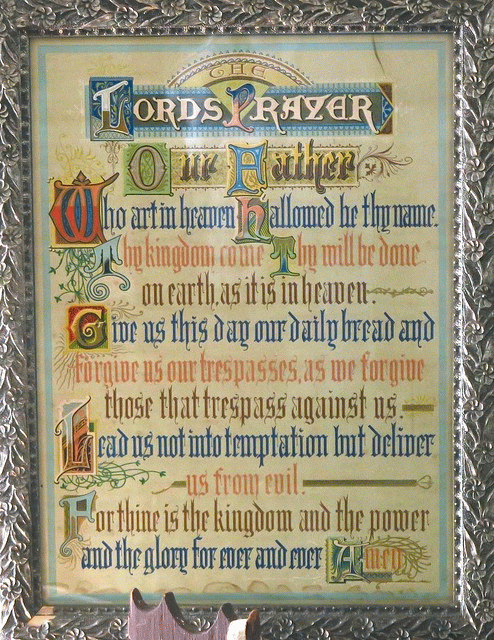Going back from Concordian economics to the ancient history of economics, this writer has written of the Economics of Moses and the Economics of Jesus from a variety of points of view. Here he would like to present the most synthetic formulation of them all: The Economics of Moses and the Economics of Jesus are fully present in the "Our Father."
The most explicit formulation is the prayer to Our Father to "forgive our debts." This is an original translation; what must be a common mistranslation is "forgive our trespasses." Trespasses? What is a trespass? The word trespass isolates Jesus from Moses.
A program of debt forgiveness is a Mosaic Debt Jubilee. Given the context, we can say that Jesus was very forceful about it. A systematic debt jubilee every seven years is essential to set our monetary house on a steady and sound foundation. This is the first essential program of Concordian monetary economics.
The second essential program is also included in the "Our Father." Jesus prays to God to give us "our daily bread." In the Parable of the Loaves and Fishes, Jesus makes it perfectly clear that He was - He is - concerned about our earthly bread. Otherwise, He would have remained content with the offer of a sermon to the crowd. Jesus was obviously concerned with our daily earthly bread in addition to our heavenly bread, of course.
It has been a recent revelation. To make our daily bread we need all four factors of (modern) production: 1. Land (a place to grow wheat and to bake bread); 2. Labor (flour does not knead itself into dough); 3. Money (to rent or buy the land where bread is made, buy flour, and sell the bread); and 4. Physical capital (the oven and other tools).
Concordian economics teaches us that to acquire control over these four factors of production we need to exercise four rights:
- The right of access to land and natural resources;
- The right of access to the fruits of one's labor;
- The right of access to financial resources imbued in our national credit; and
- The right of access to the fruits of one's property.
- The responsibility to pay taxes on land and natural resources under our control;
- The responsibility to perform tasks required in the process of wealth creation;
- The responsibility to repay loans obtained through access to national credit; and
- The responsibility to respect the property of others.
- Landowners who do not want to pay their fair share of taxes on the value of their land;
- Central bankers who do not want to serve the public interest;
- Entrepreneurs who do not want to offer full compensation for services received; and
- Business people who want to gobble up the fruit of other people's effort.
Full demonstration to the contrary can be found in the following extraordinary circumstances. Having shown to the Federal Reserve System (the Fed) the wisdom of Concordian monetary theory, the Fed had the moral fortitude to respond: "Given your proposal, I suggest that you contact your state and federal representatives."
Notice that the Fed has traditionally fought political interference into its operations tooth and nail.
This writer has had precious few resources of money and time to devote to the task. Is this the time for more resourceful entities to intervene in these affairs?
(Note: You can view every article as one long page if you sign up as an Advocate Member, or higher).






